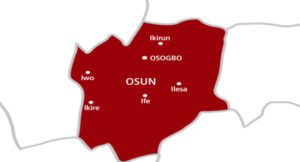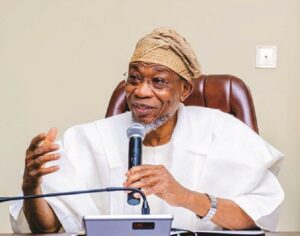


National security: Special intervention squad, its impacts and prospects
By ACP Olumuyiwa Adejobi
The development of a nation in all areas is linked, and could be directly proportional to its security architecture and dynamism. In many areas, and by many scholars, security has not only been seen or perceived as the absence of war but also the general well-being of the citizenry of that Nation, which encompasses the principles and concept of ‘The New Security Agenda.’ The components of the new security agenda include human security, environmental security, economic security, and political security, each of which is interconnected and collectively contributes to a country’s overall resilience and stability.
In the global space, security has been so crucial to development, through which Nigeria has been prominent and relevant to Global decisions on security issues, general growth and development, most especially on the African continent due to its vast geographical, demographic and resource-based strength.
Over space and time, Nigeria has been faced with certain security challenges which could be attributed to many parameters, and dimensional nature of human, material and natural endowments. These crop of security issues have put the country, its institutions and departments on their toes with a view to proffering possible solutions as prompt as possible.
In the words of McNamara (1968)1, “Security is not military hardware, though it may include it; security is not a military force, though it may involve it; security is not a traditional military activity, though it may encompass it, security is development, and without development, there can be no security.”
The role and mandate at a reliable Police institution like the NPF could not be appreciated without Nigeria experiencing quick economic recovery, social integration and general developments. The nexus between our National development and active policing system is fundamental; and these could be achieved with a police that is professionally competent, service driven, rule of law compliant and people friendly -the vision statement of the IGP.
The above which seems like a theory has formed the basis for the need to key into the New Security Agenda, which prompted the Inspector General of Police, IGP Olukayode Adeolu Egbetokun, Ph.D, NPM upon assumption of office as the 22nd indigenous Inspector General of Police to envisage the creation of a special squad to augment the already existing security structure of the Force, which is geared towards combating crimes and criminality ranging from Kidnapping, Banditry etc which has been on a rise across various regions in Nigeria. The Special Intervention Squad which is a core vision of the IGPs administration was firstly launched in Jos, Plateau State on the 29th of December, 2023 when the IGP visited for an on sight assessment of the damaged caused by armed bandits who attacked Mangu, Bokkos and Barkin Ladi Local Government areas on 24th Dec, 2024, Christmas Eve, where over 200 persons were killed and various properties destroyed. The activities of Special intervention squad in Plateau state has led to the arrest of various suspects who have been found to be directly involved in the attack, of which they have confessed to the crime. The IGP also ordered the deployment of the supervisory AIG ZONE 4 to Plateau State to oversee the affairs of the Intervention squad in combating these crimes and to put to maximum use all the assets and resources at their disposal, make the State inhabitable for criminal elements and restore normalcy to the State.
The Inspector General of Police, IGP Olukayode Adeolu Egbetokun Ph.D, NPM in the same vein on 17th January, 2024 launched the Special Investigation Squad for the FCT ably supervised by the DIG Operations Ede Ayuba and commenced immediate operations in the FCT and its environs. The IGP while recapitulating the need to control the influx of armed criminals and hoodlums into the FCT prerequisite to combating these crimes of banditry and Kidnapping, ordered the posting of men of the intervention squad and assets to border communities connecting other states like Niger, Kaduna, Nassarawa, Benue, Kogi as the criminal elements leverage on the multiple boundaries and proximity of the FCT to the boundary states, to perpetrate their criminal and evil acts, which are however surmountable.
The intervention team commanded by CP Benneth Igweh, mni, who are in high spirit to fulfil the mandate of the IGP, combed Kawu, Kuchikau, Bwari, Nigerian Law School, Verias University, Claretian Missionary Seminary, Zuma I, Zuma II, Iguh areas of the FCT which are known areas for terrorist and bandit activities. They later proceeded to Tafa, Gauraka, Garam areas of Niger state and other boundary areas of Kaduna state for similar operations.
Covert Operations of the Special Intervention squad on the 18th January, 2024 at about 0010HRS led to the interception of one Grey Toyota Hilux Van with Reg No RBC90DC Abuja carrying four passengers, driver inclusive, upon sighting the Policemen, one of the kidnappers opened fire on the men in an effort to escape but superior fire power of the squad led to the rescue of one SEGUN AKINYEMI who was kidnapped in Abuja and was being taken to Kano state. One Chinaza Philip of Life Camp Abuja was arrested while 2 G17 model pistols, one Beretta pistol, ten (10) 9mm P.A.K ammunition, and five (5) 9mm special ammunition were recovered from the kidnappers as effort is in top gear to locate and arrest the fleeing members of the gang who managed to escape in a white Mercedes Benz.
The SIS in conjunction with the Department of Force Intelligence – Intelligence Response Team (FID-IRT), the FCT Command Anti-Violent Crimes Section, Anti-Kidnapping Section and neighbouring State Commands, in a concerted effort with troops of the Nigerian Army, on the heels of the kidnappers that struck the Zuma 1 area in the Bwari Area Council on the 2nd of January 2024, the Police has successfully rescued the Victims around kajuru forest in Kaduna state at about 11:30 pm on Saturday 20th January 2024. The rigorous well-calculated rescue operation was coordinated by the recently launched NPF Special Intervention Squad. The victims have been reunited with their families.
Similarly, the SIS has successfully rescued four (4) other kidnap victims within the FCT. One of the victims, one Suleiman Sabo, was rescued in Sauka, along Airport Road while Muhammed Abel who was responsible for his kidnap was arrested with one (1) MK 1 Rifle and ten (10) rounds of live ammunition. Two (2) victims abducted from the residence of Barr. Cyprian Adikwu at Army Post Service Housing Estate, Phase 2 Extension Hilltop Kurudu on 18th January, 2024, and one Gideon Nanjul reportedly abducted on 19th January, 2024 were all released on 20th January, 2024 at about 0845hrs as a result of tireless efforts and pressure mounted by Police Operatives in conjunction with vigilante and hunters around Kurudu and Azhata Village. Victims have been reunited with their family members.
On the 20/01/2024 at about 2200HRS, DPO Tafa Division, Kaduna State acting upon credible intelligence led a team of patrol men to Easy Way Hotel in his AOR where one BELLO MUHAMMED ‘M’ aged 28YRS from Zamfara State was arrested in Possession of 2,025,000 (Two Million, twenty Five Thousand Naira). Upon interrogation, he confessed to being a kidnapper and when his phone was profiled, a picture of him holding an AK-47 Rifle inside the bush was found.
Operatives of the special intervention squad on 24/01/2024 at about 0530hrs in conjunction with officers of Robuchi Division, Anti-Kidnapping unit of FCT Command, Vigilantes stormed kidnappers camp located at Ukya Village Nasarawa bordering with FCT, bandits upon sighting the operatives engaged them in a gun duel which resulted to the rescue of fourteen (14) hostages unhurt. All victims have been reunited with their families.
In recent development in Mangu area of Plateau State which was attacked by hoodlums on the 24th of January, 2024, operative of the SIS deployed to the area swung into action, preventing further attacks and have arrested Nine (9) suspects in connection to the recent attack, recovered from them were dangerous weapons including machetes, petrol kegs, which is suspected to have been used by the hoodlums to set fire on houses in the area. Normalcy has been restored and security operatives are fully on ground to thwart any further attack.
On the 28/01/2024 at about 630hrs, one Peter Ede in company of one ThankGod Ogunyi both of Piwoyi Lugbe area reported at Karmo Division FCT, that on same date at about 0150hrs while praying at Idu Gbagyi area some hoodlums numbering seven (7) armed with guns and cutlasses attacked them and abducted three (3) of their members to unknown destination. Upon receipt operatives of SIS, DPO Karmo alongside vigilantes swung into action, engaged the hoodlums in a fierce gun battle leading to the rescue of the three (3) abducted victims, namely; one Igbodi Emeka ‘M’, Precious Uche ‘F’, and Eric Chukwudi ‘M’ unhurt and have been reunited with their families.
In the space of two (2) weeks till date, operatives of the Police tactical squads, FID-1RT, FID STS alongside operatives of the Special Intervention Squad (SIS) have successfully arrested a total number of twenty six (26) suspects for various offences ranging from Kidnapping, Cultism, Gun Running, Unlawful Possession of Firearms, Armed Robbery amongst others in its efforts to clampdown on criminal elements in the FCT and its environs. The following exhibits were recovered from the suspects; 10 military camouflage uniforms, 10 camel bags, 12 military hats, 6 military cardigans, 3 anklets, 2 military belts, 13 AK-47 rifles, 6 AK-49 rifles, 2 SMG rifles, 1 LAR rifle, 1 locally fabricated AK-47 rifle, 1 Revolver Pistol, 290 rounds of AK-47 live ammunitions, 4 AK-47 Magazines, 2 SMG Magazines, 1 LAR Magazine, cash sum of N2.2 million Naira, a bag containing several illicit drugs, 2 Pump action rifles, 1 dane gun, 2 volkswagen Golf cars, 1 gun-like wood carving.
Embracing the new security agenda is not just a choice but a necessity for Nigeria’s stability, development, progress and the well-being of its citizens. The interconnectedness of security challenges demands a paradigm shift from traditional approaches to a more integrated and intelligence-driven strategy. The path which the present Inspector-General of Police is towing to reposition the NPF in actualizing its mandates and regain its primacy in the internal security business of our dear country. These challenges are not isolated but are interconnected, and addressing one aspect often triggers complexity, ambiguity and security gaps. The overview and prospective possibilities must be holistic and all-encompassing should any change be achieved.
The journey towards a more secure Nigeria calls for sustained efforts, collaboration among security operatives and comradeship for combating crimes. As Nigeria navigates the complex global realities, our new security agenda must reflect our commitment to adaptability, collaboration, and foresight. The path ahead is challenging, but with determination and a united effort, Nigeria will navigate these challenges and secure a safer and more prosperous future for its citizens and the global community. Nigeria is embarking on a new security agenda that addresses these complex challenges which also requires drastic approach such as the invention of a Special Intervention Squad SIS by the IGP, whose main duty is to take the “war” to the door steps of these criminals, completely flush them out in FCT and its environs, similar operations will be launched in every other State across Nigeria. The fight against insecurity in Nigeria is our collective responsibility.
ACP OLUMUYIWA ADEJOBI, is a Public Relations Practitioner, Security Expert and member Society for Peace Studies and Practice. He can be reached via [email protected]



